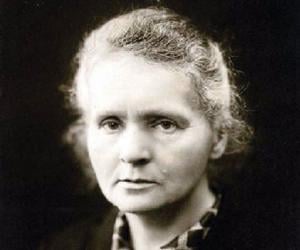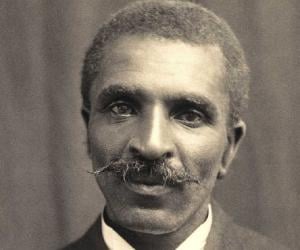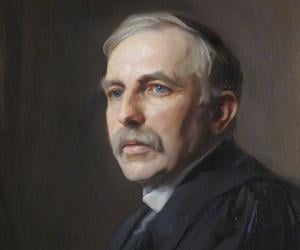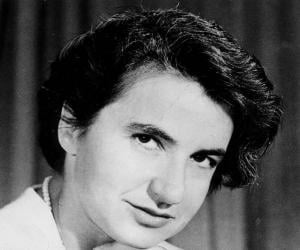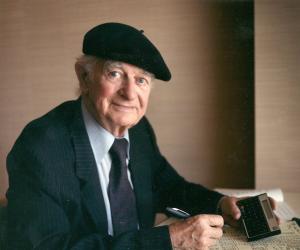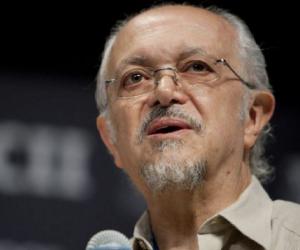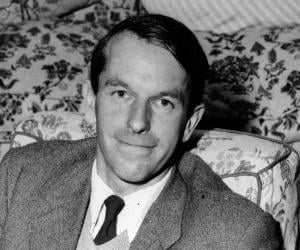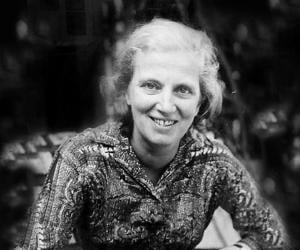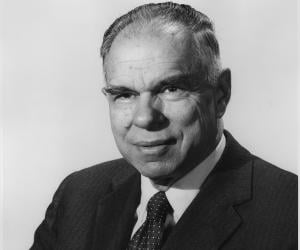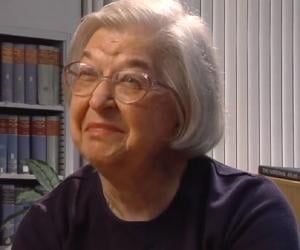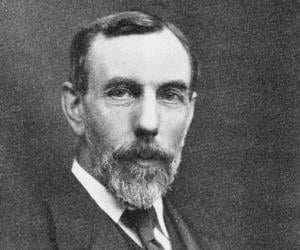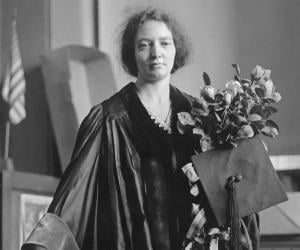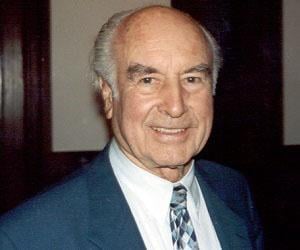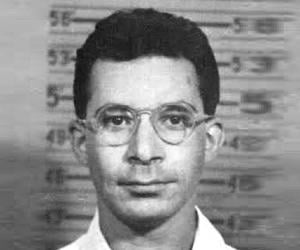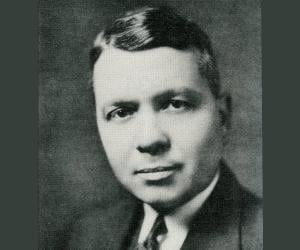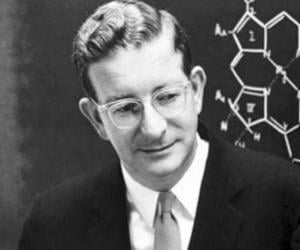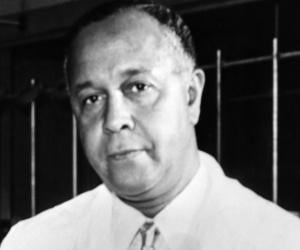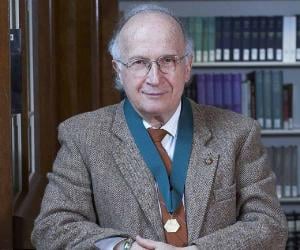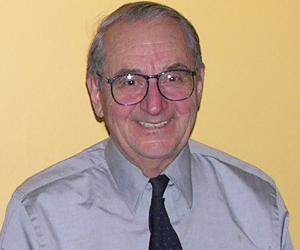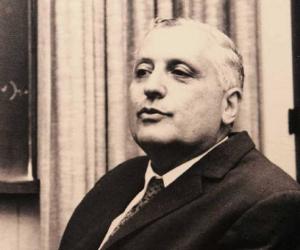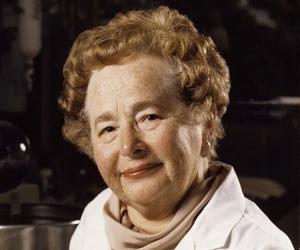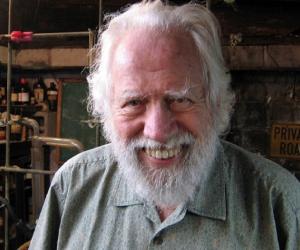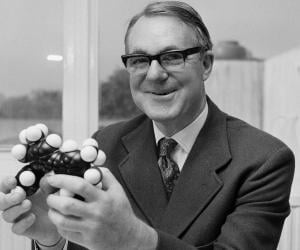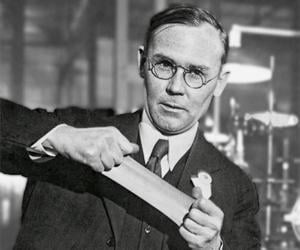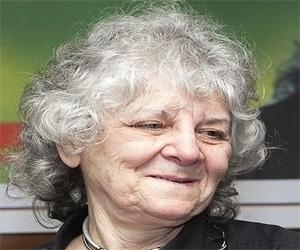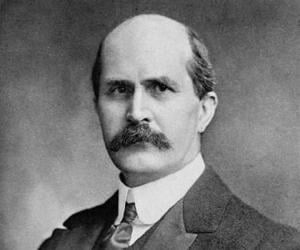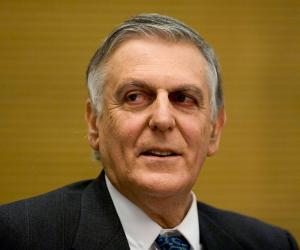New Zealand physicist Ernest Rutherford is remembered as the father of nuclear physics. His discovery of radioactive half-life and of radon, and his differentiation of alpha and beta radiation, won him the Nobel Prize in Chemistry in 1908. Element 104 was named rutherfordium in his honor.
Only person to win two unshared Nobel Prizes, Linus Carl Pauling was an American theoretical physical chemist, who received the 1954 Nobel Prize in Chemistry for his work on nature of chemical bond and 1962 Nobel Prize for Peace for his efforts to stop nuclear weapon testing. Also a prolific writer and educator, he has published 1,200 books and papers.
Mario J. Molina was a Mexican chemist who played a key role in understanding and explaining the threat from chlorofluorocarbon (CFC) gases to the Earth's ozone layer, which earned him the prestigious Nobel Prize in Chemistry in 1995. Molina was the third Mexican-born Nobel laureate and the first Mexican-born person to win a Nobel Prize in Chemistry.
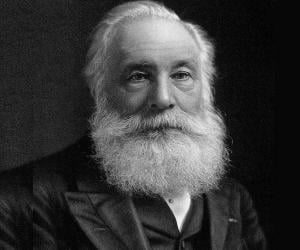
William Henry Perkin is best remembered for his chance discovery of the dye mauveine, made of aniline purple. He had apparently discovered the dye while attempting to synthesize quinine. The Royal Medal-winning British chemist also studied salicyl alcohol and flavoring agents and synthesized the first artificial perfume.
Frederick Sanger remains one of only two people to have won the Nobel Prize twice in the same category. The British biochemist is remembered for his ground-breaking work on nucleic acids and the insulin molecule. The son of a Quaker medical missionary, Sanger, too, grew up believing in Quakerism.
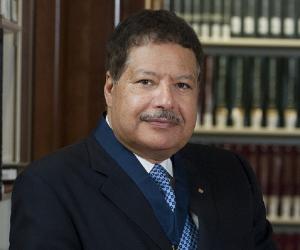
Dorothy Hodgkin received the 1964 Nobel Prize for mapping the structure of penicillin and Vitamin B12. She is also known for her work on insulin. Beginning her work on structure of an organic compound by using X-ray crystallography as an undergraduate student, she later developed it further and used it to determine the three-dimensional structure of complex organic molecules.
Glenn T. Seaborg was an American chemist who shared the 1951 Nobel Prize in Chemistry with Edwin McMillan for discovering the first transuranium elements. He also authored or co-authored several books and articles, including 500 scientific journals. In 2005, Glenn T. Seaborg was inducted posthumously into the National Inventors Hall of Fame.
Stephanie Kwolek was an American chemist remembered for her invention of Kevlar. She worked at the DuPont Company for over four decades and was awarded the company's Lavoisier Medal for her discovery. In 1995, she was inducted into the National Inventors Hall of Fame, becoming the fourth woman to be inducted. She also won other awards including the Perkin Medal.
The son of a civil engineer, Nobel Prize-winning Scottish chemist William Ramsay revolutionized science with his pathbreaking discovery of the noble gases, thus forming an entirely new segment of the periodic table. He is also remembered for his long association with UCL. He was knighted for his achievements.
Marie Curie and Pierre Curie’s daughter, Irène Joliot-Curie, herself a brilliant scientist, won the 1935 Nobel Prize in Chemistry, along with her husband, Joliot-Curie, for discovering artificial radioactivity. She was also one of the first three female French government members. She tragically died of leukemia caused by exposure to radiation.
Swiss chemist Albert Hofmann was the first known person to synthesize the psychedelic effects of lysergic acid diethylamide (LSD). Interested in science from a young age, he studied chemistry at the University of Zürich. As a chemist, he conducted several significant studies and authored more than 100 scientific articles and books. He was a recipient of the prestigious Scheele Award.
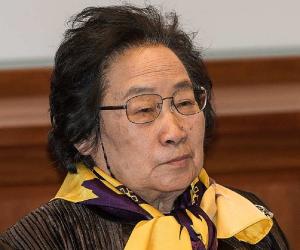
Chinese phytochemist and malariologist Tu Youyou is best remembered for her Nobel Prize-winning discovery of the anti-malarial drug qinghaosu, or artemisinin. She is the first Chinese female Nobel laureate. A tuberculosis infection in her younger days had inspired her to step into medicine. She later studied traditional Chinese medicine, too.
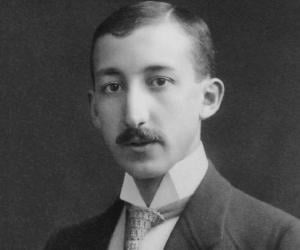
Nobel Prize-winning Hungarian-Swedish chemist George de Hevesy is best remembered for his research on isotopic tracer techniques to study animal metabolism. He is also credited with co-discovering the element hafnium with physicist Dirk Coster. He fled the Nazi regime and moved first to Denmark and then to Sweden.
Harold Urey was an American physical chemist best remembered for his pioneering work on isotopes. He is credited with the discovery of deuterium, for which he received the prestigious Nobel Prize in Chemistry in 1934. Harold Urey also played a key role in the development of the infamous atom bomb.
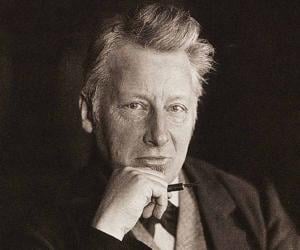
Jacobus Henricus van 't Hoff was a Dutch physical chemist best remembered for winning the first Nobel Prize in Chemistry. Van 't Hoff's work helped found the modern theory of chemical thermodynamics, chemical kinetics, chemical equilibrium, and chemical affinity. A highly popular theoretical chemist, Van 't Hoff is also counted among the founders of physical chemistry.
Robert Burns Woodward was an American organic chemist best remembered for winning the 1965 Nobel Prize in Chemistry. Regarded as the most preeminent synthetic organic chemist of the 20th century, Woodward is also remembered for his contributions to organic synthesis. Robert Burns Woodward was also the recipient of the Copley Medal, National Medal of Science, and William H. Nichols Medal.
Percy Lavon Julian was an American chemist whose work paved the way for the production of birth control pills and corticosteroids. Julian went on to start his own company which helped reduce the price of steroid intermediates. In 1973, Percy Lavon Julian was inducted into the National Academy of Sciences and became the first African-American to receive this honor.

Renowned James Lovelock is best known for propagating the Gaia hypothesis, which states that every living being on planet Earth is part of a single self-regulating superorganism. He is also known for his long association with NIMR, London, and Harvard University and has over 50 patents under his name.
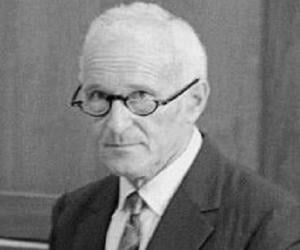
Sidney Gottlieb was an American spymaster and chemist who played a major role in the CIA's mind-control program and assassination attempts during the 1950s and 1960s; the illegal human experimentation program which he headed was called Project MKUltra.
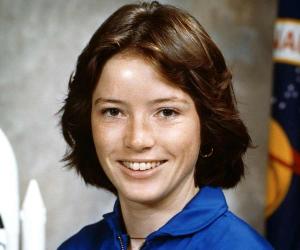
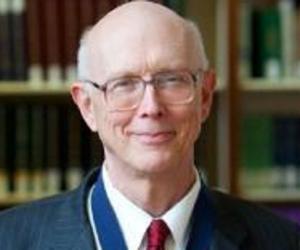
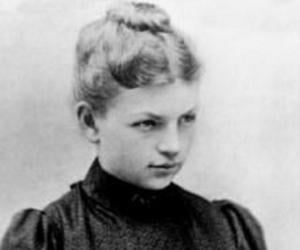
Clara Immerwahr was a German chemist who became the first German woman to receive a doctorate in chemistry. Apart from being a chemist, Clara Immerwahr was also a pacifist and a women's rights activist. Her work, marriage with the popular chemist Fritz Haber, and her suicide at the age of 44 have inspired films, novels, and TV series.
Ilya Prigogine was a physical chemist remembered for his work on irreversibility, complex systems, and dissipative structures. A respected member of several scientific organizations, Prigogine was honored with the Francqui Prize in 1955. In 1976, he won the Rumford Medal for his work concerning irreversible thermodynamics. His work on irreversible thermodynamics earned him the Nobel Prize in Chemistry in 1977.
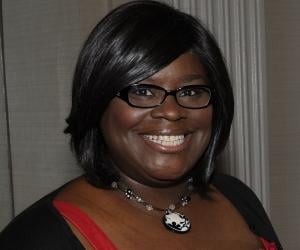
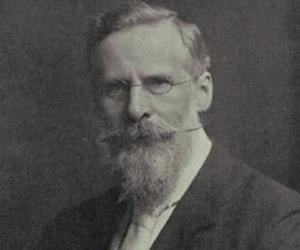
William Crookes was a British chemist and physicist remembered as a pioneer of vacuum tubes. He was the inventor of what became known as the Crookes tube. He is also credited with the discovery of the element thallium. He was the first person to describe the spectrum of terrestrial helium. He was interested in spiritualism and occultism as well.
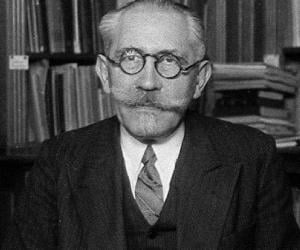
Best known for developing the Langevin dynamics and the Langevin equation, physicist Paul Langevin was also a staunch Communist. Having worked on his doctoral thesis under Pierre Curie, he had formed a connection with Curie’s wife, Marie Curie, which developed into a full-blown love affair after Pierre’s death.
The daughter of Jewish immigrants in New York, Gertrude B. Elion excelled in chemistry at Hunter College, where she studied for free, but was initially unable to find a job due to gender bias. The renowned biochemist and pharmacologist later won a Nobel and became a pioneer in medical research.
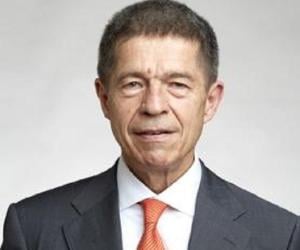
Joachim Sauer is a German professor emeritus of theoretical and physical chemistry at the prestigious Humboldt University of Berlin. Sauer is an active research scientist in computational and quantum chemistry. His work has helped understand the structures and activities of catalysts like zeolites. Joachim Sauer has won several prestigious awards such as the Schrödinger Medal and Liebig Medal.

Owsley Stanley was an American clandestine chemist and audio engineer. During the 1960s Stanley played an important role in the Bay Area hippie movement and the counterculture of the decade. As the sound engineer of the Grateful Dead, Stanley developed the band's famous Wall of Sound, one of the largest transportable public address systems ever built.
A pioneer of psychedelic drug synthesis, Alexander Shulgin came to be known as The Godfather of Ecstasy, for reinventing the drug MDMA, or ecstasy, for medical use. The Harvard drop-out, who later studied psychiatry and pharmacology, would often experiment his newly invented drugs on himself, his wife, and his friends.
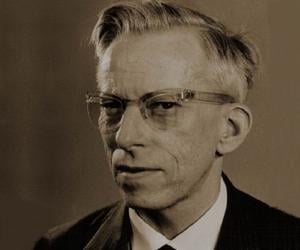
John Cornforth was an Australian-British chemist who became the first Nobel laureate from New South Wales when he was honored with the Nobel Prize in Chemistry in 1975. Over the course of his career, Cornforth also won other prestigious awards like the Royal Medal, Copley Medal, and Centenary Medal. In 1975, he was adjudged the Australian of the Year.
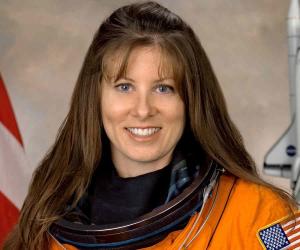
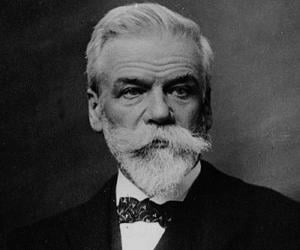
Belgian chemist Ernest Solvay began working in his family’s salt-making business soon after finishing school, as his condition of acute pleurisy prevented him from studying any further. He is remembered for developing the ammonia-soda process that produces soda ash, which is crucial to the glass and soap industries.
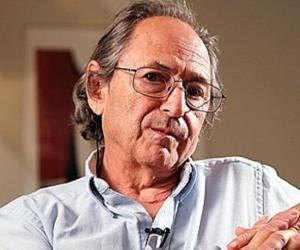
Michael Levitt is a biophysicist who has been serving as a Stanford University professor of structural biology since 1987. Along with Arieh Warshel and Martin Karplus, Levitt received the Nobel Prize in Chemistry in 2013. He has also received several other awards, including the DeLano Award for Computational Biosciences and was inducted into the National Academy of Sciences in 2002.
Wallace Carothers was an American inventor and chemist. He worked for DuPont where he was the leader of organic chemistry. Carothers, who played a major role at the DuPont Experimental Station, is credited with inventing nylon. Despite his success, Carothers was unhappy with his life and committed suicide at the age of 41; he was troubled by bouts of depression.
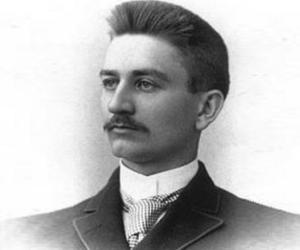
Herbert Henry Dow taught chemistry before venturing into a business career. Though his first company was a failure, his work impressed investors, and he was soon able to establish Dow Chemical, which supplied low-cost bromine to the US markets. He later made auto pistons out of spare magnesium.
Ada Yonath is an Israeli crystallographer. She is best known for her work on the structure of the ribosome, for which she received the 2009 Nobel Prize in Chemistry along with Venkatraman Ramakrishnan and Thomas A. Steitz. The first Israeli woman to win the Nobel Prize, she occupies the Martin S. and Helen Kimmel Professorial Chair at the Weizmann Institute.
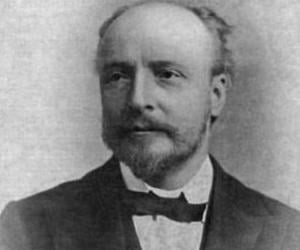
James Dewar was a British chemist and physicist best known for his invention of the vacuum flask. He conducted considerable research into the liquefaction of gases and atomic and molecular spectroscopy. He also wrote papers on the qualities of hydrogen and organic chemistry. He was awarded the Albert Medal of the Royal Society of Arts and the Rumford Medal.
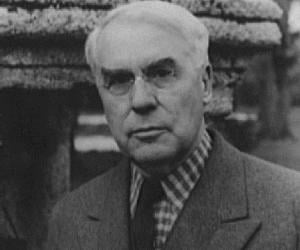
William Henry Bragg was an English physicist, chemist, and mathematician. He is best known for sharing the 1915 Nobel Prize in Physics with his son Lawrence Bragg for their work in the analysis of crystal structure by means of X-rays. William Henry Bragg had an illustrious academic career and was elected president of the Royal Society in 1935.
Dan Shechtman is a scientist currently serving as the Philip Tobias Professor of Materials Science at the Technion – Israel Institute of Technology. He is best known for his work in the field of quasiperiodic crystals. He received the Nobel Prize in Chemistry in 2011. He unsuccessfully ran for the post of president of Israel in 2014.
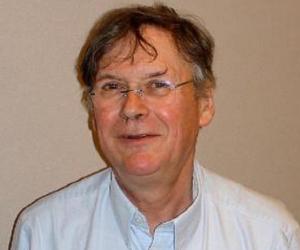
Nobel Prize-winning British biochemist Tim Hunt is best known for his research on cell cycle regulation. He was the first to isolate cyclin, while studying sea urchins. His work helped scientists working on cancer research. He has been knighted for his achievements and has also won the Royal Medal.
